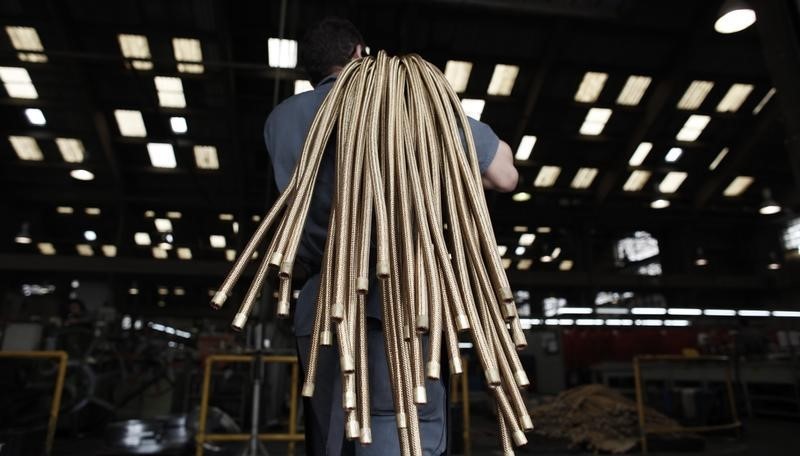Investing.com’s stocks of the week
By Geoffrey Smith
Investing.com -- The Eurozone’s largest economy looks set for at least one quarter of economic contraction after incoming orders to German factories fell for a third month in a row in April.
Orders fell by 2.7% on the month, following on from declines of 4.2% and 0.8% in the previous two months. The numbers were – again – a disappointment, falling well short of expectations for a bounce of 0.3%. March’s data were revised up from an initial estimate of -4.7%, however.
The figures are the latest evidence of a sharp slowdown in Germany in response to Russia’s invasion of Ukraine, which has triggered steep rises in energy costs. Producer price inflation is now running at an annual rate of 33.5%, largely due to the fact that gas prices have risen by over 150% in the last year, while industrial electricity prices have risen by nearly 90%.
Germany has, nonetheless, thrown its weight behind a European Union ban on Russian oil and fuel imports by the end of the year, which threatens to entrench its problems with energy supply.
Demand from key markets such as China has also suffered due to over two months of lockdown restrictions in Shanghai and elsewhere.
"The increased uncertainty caused by the Russian invasion of Ukraine continues to lead to weak demand, especially from abroad,” Destatis said. “However, companies still have well filled order books.”
The numbers are the first of three key releases this week from the German economy, ahead of industrial production numbers on Wednesday and current account data on Friday. Production fell by the most in 16 months in March, according to the first reading, although a regular pattern of upward revisions suggests the actual drop may have been smaller. Data on the country's key export sector are due on Friday. The current account surplus narrowed sharply in March as the cost of energy imports rocketed.
